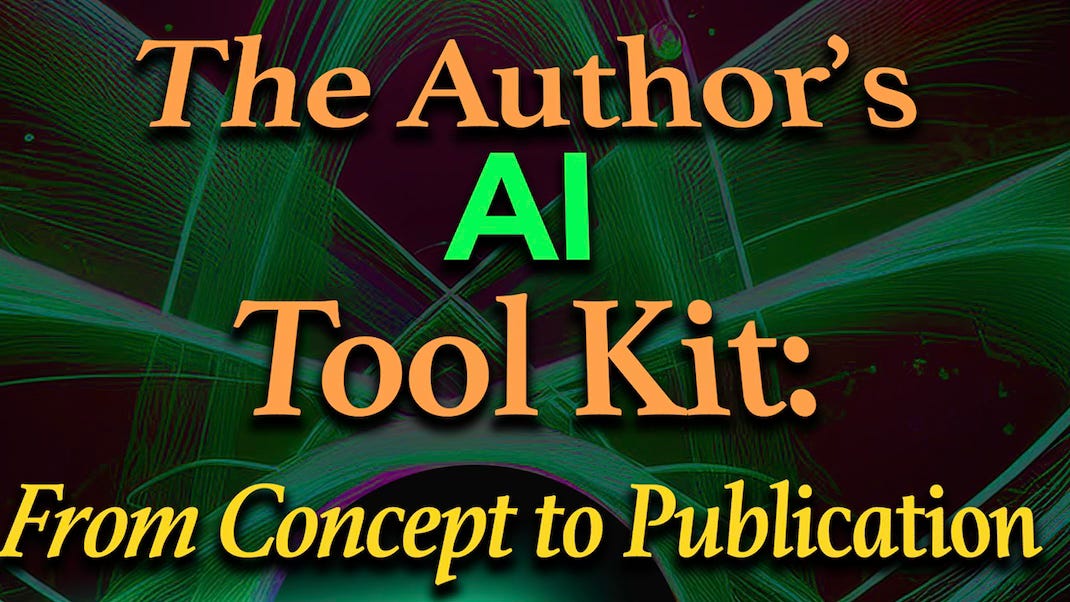The German magazine Alle Beiträge published an interview with me on August 18, 2025
Here’s the English translation of the interview: (translated by Perplexity.AI)
----
The American author Hank Quense only began exploring artificial intelligence more deeply in early 2024—at first out of curiosity, then increasingly fascinated. Today, he uses AI as a practical tool in every stage of the writing process, without ever giving up creative control. A balancing act. In this conversation, he explains why precise prompts are crucial, how AI can change book marketing, and why transparency in using AI is essential for him.**
Hank, what prompted you to explore AI for your work?
In early 2024, I found myself between major projects and was a little bored. During that time, I took a closer look at AI because I wanted to know what was behind all the hype. At first, I wasn’t particularly impressed—until I discovered the secret: you have to formulate precise prompts. General questions lead to general answers. Only those who ask in detail will get truly useful results. Suddenly, I was fascinated by what AI can actually do.
Which practical application surprised you the most?
As an author, I was really astonished—actually shocked—at how AI, with the right prompts, can help in all five phases of producing a book: planning, writing, publishing, marketing, and sales.
You describe AI as a “practical tool” and a “sidekick.” How does this mindset apply to the work of marketing and media professionals?
That depends very much on the individual. Those who think creatively can try AI in unexpected situations—and often stumble upon surprising, new ideas. In marketing, for instance, AI can generate a list of keywords for a story or even create an entire marketing plan. For media professionals, if you give AI enough context, it can develop social media posts tailored to a specific platform. It also produces solid results when drafting press releases. The critical factor is to provide AI with sufficient relevant information so it clearly understands what you need.
Given these developments, will we lose our creativity?
There is a danger of letting AI replace one’s own creativity. That happens if you accept its answers as finished products instead of treating them as a first draft. Personally, I use AI’s results as raw material that I then revise. After all, it doesn’t write in my voice, uses words I wouldn’t, and is often too verbose. My style is much more concise. In short, the key lies in safeguarding your own voice and creativity—and not letting AI replace you.
You emphasize the importance of precise requests. What tip has proven most useful for you?
AI is, after all, just a computer program—and the old IT rule applies: “Garbage in, garbage out.” So you need to invest time in crafting clear, specific requests. Often, I don’t get the answer I want right away. Then I reframe the query. Sometimes a single word change is enough; other times, I have to restructure the entire sentence. It has taken me four or five tries before I got a usable result. So my advice is: don’t accept every AI answer at face value. AI is not infallible—no matter how much it’s praised in the media.
You talk about the ethical responsibility to disclose AI use. What should that look like in professional content creation?
When I use AI-generated responses or text passages, I italicize them and clearly inform the reader. Unfortunately, there are many unethical practices. Recently, I saw an ad that said: “Send us your story idea and for $500 we’ll turn it into a complete novel, with a cover, and publish it under your name.” There are now countless such offers—and I fear we’ll soon be flooded with this kind of low-quality content.
In your book, you dedicate a lot of space to marketing. How has AI changed your own promotion, and which strategy do you consider most effective for authors?
The most important component in book marketing is a good landing page. For self-publishing authors, AI can help design a compelling page. Experienced authors, on the other hand, can use AI to uncover marketing aspects they hadn’t considered before. The most effective strategy is: get an AI tool and learn how to craft precise prompts. Then unleash your creativity. If the request is interesting, the answer usually is too. I often receive surprising results that I never would have come up with on my own.
What advice would you give to marketing or media professionals who are just beginning with AI?
My advice is the same: learn how to formulate detailed and precise prompts—and don’t let AI take away your voice. Okay, that’s two tips… Finally, I want to emphasize: every single word of this interview comes from me. Not one word was generated by AI.
You can find my book on Amazon and other book seller sites



Hi Hank. I have an in-built aversion to AI, but your article above made me think again. Have you published any fiction yourself? Amazon showed me only 3 books for adult/chilld writers. Oh and happy birthday!